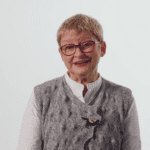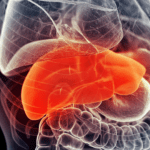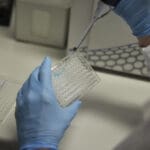Tag: cancer research

When we think of cancer research, we often imagine scientists in labs searching for new treatments. But there’s another side to cancer research that’s just as important – supportive care research. This kind of research focuses on helping people live well during and after cancer treatment is completed. Professor Kate White from the Daffodil Centre* […]

Cancer Council NSW is excited to announce over $5.8 million in funding for cutting-edge cancer research.

The number of liver cancer cases increases faster than any other cancer. By 2030, deaths from liver cancer are expected to rise by 85%, putting even more pressure on the public health system. While some early-stage liver cancers can be treated with surgery or a liver transplant, most people are diagnosed too late for these […]

Breast cancer remains one of the most common cancers affecting Australians. While many cases are treatable, metastatic breast cancer (mBC) – when the cancer has spread to other parts of the body – remains a major challenge. Each year, around 3,000 Australians die of mBC. That’s why Professor Alexander Swarbrick and his team including Tony […]

New research from the Generation Vape research project shows that playing sports and athletic performance are protective factors against using e-cigarettes (vapes). For many young people, their passion for playing sports and performing well deters them from vaping and may even influence them to quit, many noting breathlessness as a common negative health effect. What […]
Professor Bogda Koczwara AM will drive innovation at UNSW Sydney and Cancer Council NSW’s Australian Research Centre for Cancer Survivorship. Medical oncologist and cancer survivorship expert Professor Bogda Koczwara has been appointed Director of the Australian Research Centre for Cancer Survivorship. The centre, created through a joint investment of $40 million from UNSW and Cancer […]

At the Research Awards 2024, we had the pleasure of hearing from Professor Anna DeFazio AM, University of Sydney, who heads the gynaecological oncology research laboratory at the Centre for Cancer Research, the Westmead Institute for Medical Research. She is also the co-lead for the ovarian cancer stream at the Daffodil Centre*. The focus of […]
Generation Vape takes the first look at the impact of Australia’s vaping laws A new report from the Generation Vape research project reveals promising early indicators that Australia’s new vape laws are reducing adolescent access to and use of vapes. The Generation Vape study assesses the impact of the laws on adolescents aged 14 to […]

The Sally Crossing AM Award for an Outstanding Outcome in Cancer Research (individual award) reflects the enduring legacy of Sally Crossing AM (1946-2016), a pioneer who championed consumer involvement in cancer research. Awarded by Cancer Council NSW and Cancer Voices NSW, this award is made possible by the extraordinary support of the Belalberi Foundation and the […]

Among the nearly 21,000 people diagnosed with breast cancer each year, more than 2,000 of those people will die.
That’s why researchers are always looking for new ways to treat it and help people feel better.